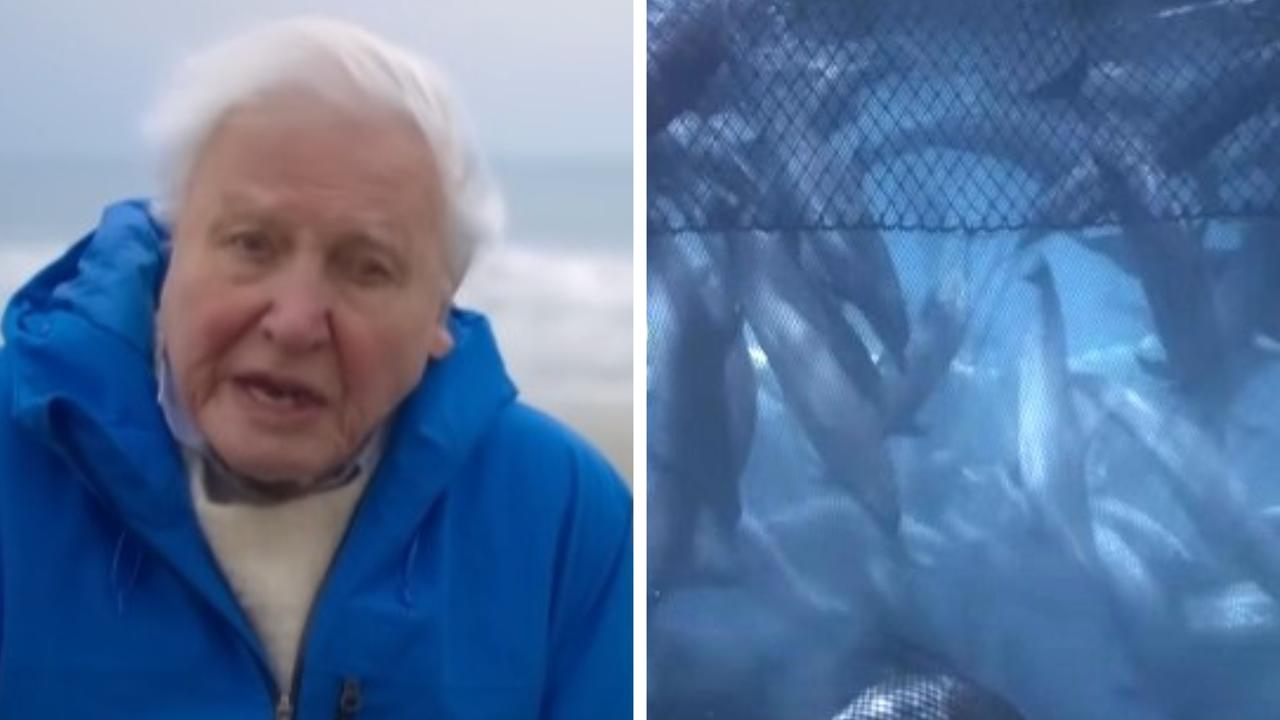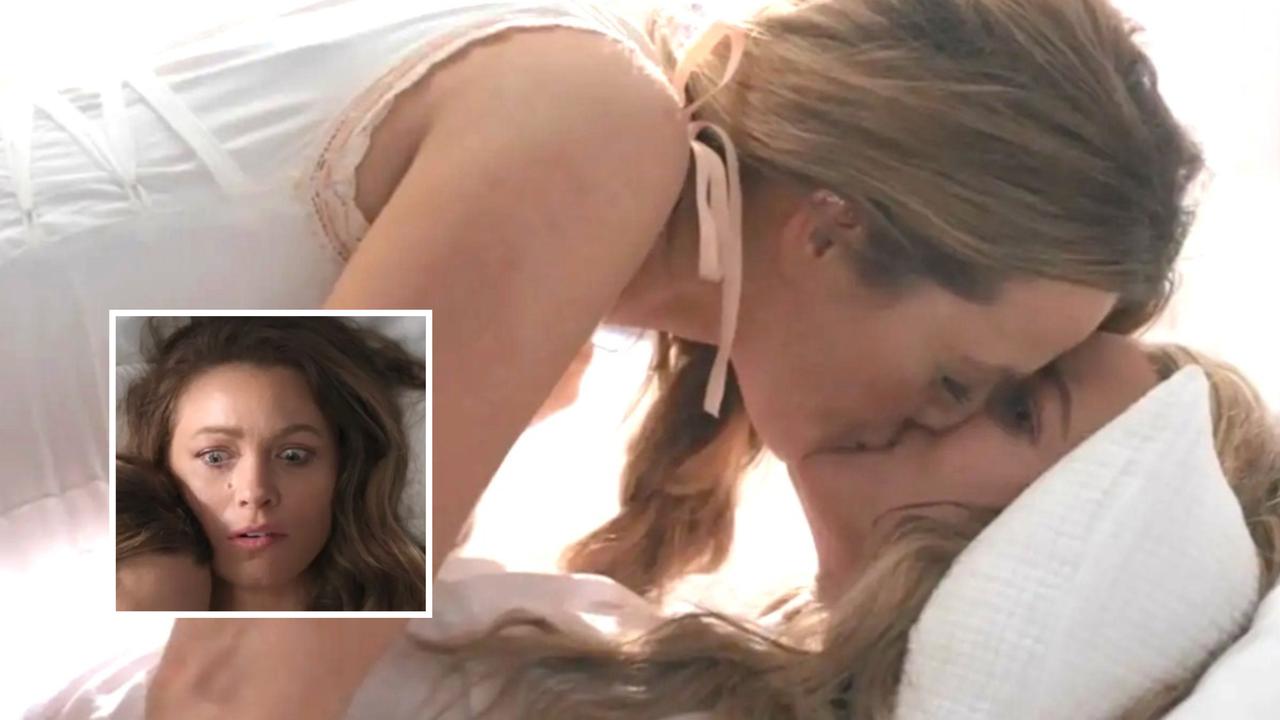Why Ali’s Wedding is an important movie
DON’T worry, you’re not about to be lectured with some sombre documentary. Sometimes, important messages are best delivered with laughs.
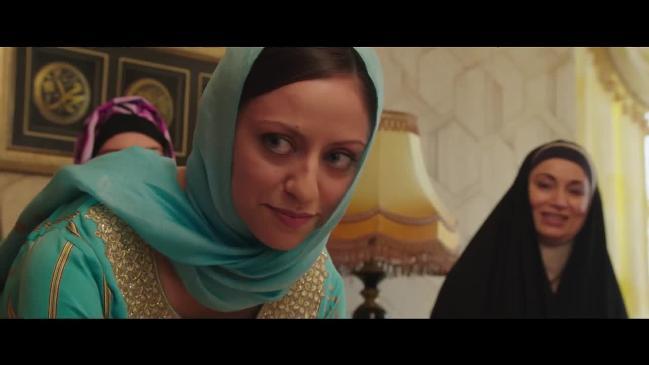
New Movies
Don't miss out on the headlines from New Movies. Followed categories will be added to My News.
YOU can thank Claudia Karvan for Ali’s Wedding. Without her, Australia’s “first Muslim rom-com” may never have happened.
Comedian, writer and actor Osamah Sami was on the set of 2009 TV movie Saved when he started telling Karvan his life story. The tale he told seemed so outlandish, Karvan flagged down director and producer Tony Ayres to hear it — a faked medical degree, deported from America for starring in a Saddam Hussein musical, and ran away from his wedding.
Ayres’ immediate response was “That’s a movie”.
And now it is.
Ali’s Wedding, co-written by Sami and veteran scribe Andrew Knight, is out this week and it’s a sweet, charming take on all the outrageous events of Sami’s young life.
Sami plays Ali, a barely fictionalised version of himself, a young Iraqi-Australian whose father Mehdi (Don Hany) serves as the cleric of their local mosque.
Feeling under pressure from his parents and community, who always expected him to succeed academically, he tells everyone he scored highly on his medical degree entrance exams when he didn’t.
He fakes going to uni for a whole year, in part to be closer to Diane, a whip-smart student from his mosque who wants to be a doctor. Ali and Diane are enamoured with each other but his parents have already arranged a marriage for him with someone else and her father disapproves of her interacting with men.
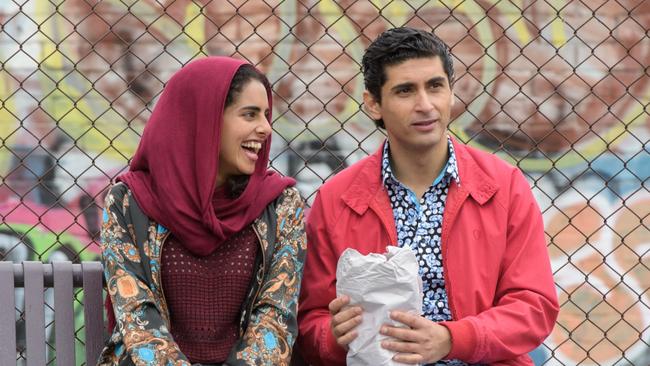
Faking going to uni seems like an extreme option but Sami contextualises the decision within the expectations of immigrant parents.
“Our parents came here under strenuous circumstances, went through poverty and war, to bring us here,” he told news.com.au. “We have it so good here in Australia, it’s a wonderful country. So you’re expected to study and do well. But it’s not that easy. I say that with us, you’ve got to either be a doctor or a taxi driver.”
Sami’s real-life father, who moved his family here when Sami was 13 years old, died unexpectedly from a heart attack four years ago. Sami wrote about the harrowing experience in his book, Good Muslim Boy, and this film is a tribute to his dad.
Hany’s portrayal of Sami’s father is one of compassion, empathy and respect. For Sami, watching his dad immortalised on screen was a bittersweet experience, especially when the wounds of losing him are still fresh. He, almost imperceptively, chokes up when talking about it.
“Don Hany does such a splendid, wonderful job that when we were filming, I felt like I was talking to my dad,” he said. “He really absorbed all those beautiful qualities and his performance is imbued with that beautiful, gentle soul dad had.”
Sami said his family is supportive of his creative endeavours — now that he is neither a doctor or a taxi driver — and that he couldn’t have made this film without them.
“They’ve been great. Although mum asked to read the screenplay and she was like, ‘I’m not that angry, why do you have me shouting in the film?’ I’m like, ‘Mum, you’re shouting right now’. She’s like, ‘But you deserve it now’. She’s great. And when I started writing it, dad was still alive and he consulted on the script and which aspect of the story I should tell. He said, ‘Be true. Be true to the events and be true to yourself.’”
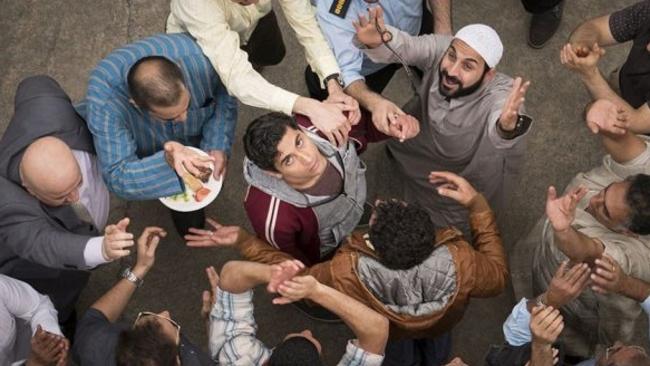
There are comparisons to be drawn between Ali’s Wedding and Pakistani-American comedian Kumail Nanjiani’s indie rom-com The Big Sick, which was released a month ago.
Both films are about a personal love story that happened to their writers and male leads. Both films are also about the experience of a Muslim immigrant in their adopted Western homes and the challenges they face in straddling two cultures and the expectations of their conservative families and traditions.
Like The Big Sick did for American audiences, Ali’s Wedding represents a chapter in the our national narrative that isn’t just another whitebread, been-there-seen-that story. Especially at a time when the political discourse around Muslim-Australians can veer towards the toxic.
“We’re always asked to assimilate in some form,” Sami said. “How can we assimilate if we don’t see ourselves reflected in the wider Australian narrative?
“It would be arrogant of me to say, ‘this is a crucial film’. That’s up to the audience to decide.
“What I do know is that we have permanently etched a slice of the Australian narrative on the big screen and it’s going to be there forever. That’s important because we are part of the Australian story.”
Ali’s Wedding premiered earlier this year at the Sydney Film Festival where it won the Audience Award. Hopefully, a mainstream audience will also flock to Ali’s Wedding to see that the Muslim-Australian community is just as multidimensional as any other Australian community — it’s not just one thing or the other.
“It’s not just a story about Muslim-Australians, it’s a story about Australians,” Sami said. “Hopefully everyone see a part of themselves in the film, regardless of their religion or background or colour, because feelings don’t discriminate.”
Ali’s Wedding is in cinemas now.
Continue the conversation on Twitter with @wenleima.
Originally published as Why Ali’s Wedding is an important movie

